A Day in the Life of an Expert Safari Guide
A Day in the Life of an Expert Safari Guide
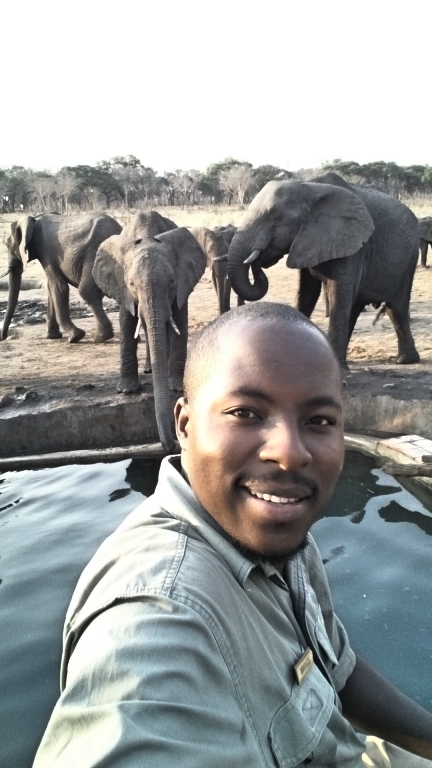
A Day in the Life of an Expert Safari Guide
In last week’s post, I wrote about the importance of having an expert guide on your African Safari. Makhosi Ncube, from Somalisa Camp in Hwange National Park, Zimbabwe, was our expert guide, and I decided to follow-up and ask him some burning questions about what his daily life is like. Mak, kindly agreed to answer them.
1). Is it romantic? (if so, how?)
- The romance for me is in the bonds you form with the different people you meet. At the end of their stay, they are not guests for me, but they are like family; it feels like we’ve known each other for ages. It’s amazing how spending time with someone over the course of three days can create amazing long lasting bonds and friendships.
2). Is it dangerous? (Please give examples of a dangerous event and how you overcame it. Were you alone or with guests?)
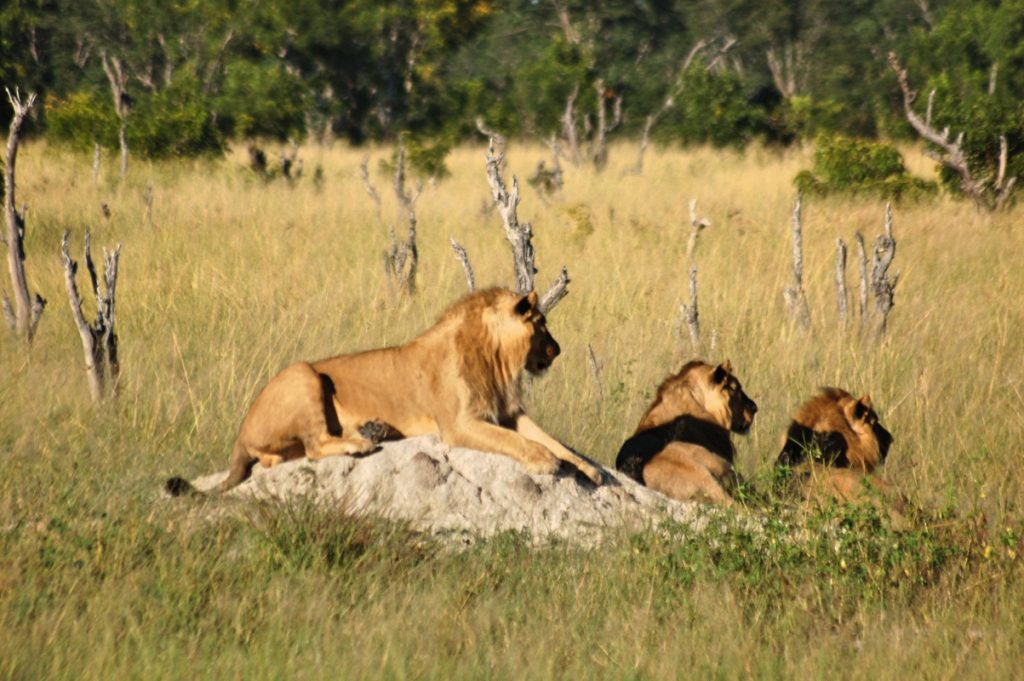
- It’s safe to say while it’s one of the most amazing jobs, it’s also one of the most dangerous. You come across all sorts of situations dealing with wild animals. While some behavior can be predicted, at times, things happen differently. An example is while on a training exercise with fellow guides, we were tracking some lions, unbeknownst to us, they decided to make a turn and come back. So there we were face to face with Cecil’s pride of 11 lions. They stopped and looked at us; we held our ground and stood facing them with about 20 meters between us. They saw us and branched off, while maintaining a watchful eye on us. So if it wasn’t for our proper training things could have easily gone wrong if we had panicked and started running.
3). Is it a job? ( Please explain so those who think it’s not a job, but just a fun life, get what is involved.)
- Yes it’s a job, the training we undergo is intense and very hard because it’s not just our lives that depend on it, but also the lives of the people with us. You start off with theoretical exams which test your knowledge of animals, birds, trees, the law, firearms safety and handling, as well as knowledge on current world events. You must pass this in order to be even allowed to start the practical side of guiding; then you undergo training for years till you’re competent enough to be able to take people on safaris. Learning does not stop. Once qualified, you have to keep studying as there is no limit to what is being discovered about these amazing animals we have surrounding us.
4). The best part of your job.
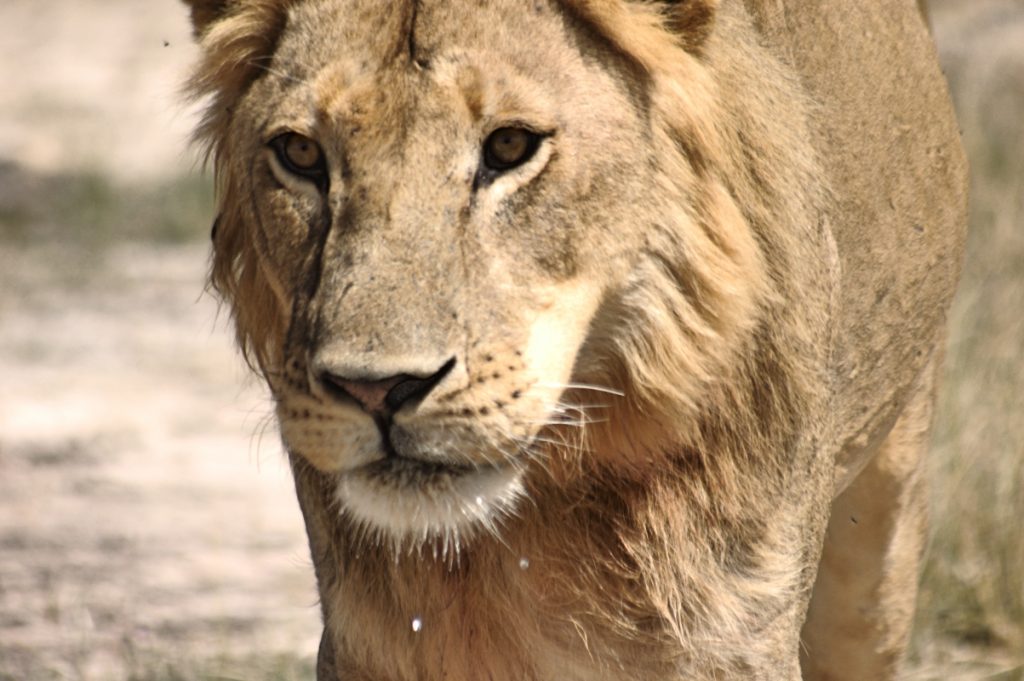
- The best part of my job is meeting new people from all over the world, seeing the smiles on their faces as they encounter their first elephant in the wild, and hearing the excitement in their voices as they ask questions about what they’re seeing. The look on their face as they are overwhelmed when a lion comes close to the car or passes by roaring. For me this job allows me to showcase the best of Zimbabwe from its amazing wildlife to its diverse culture. The best part is it allows me to travel the world through the stories and conversations held with so many diverse people from all over, as they describe their countries and homes.
5). The worst part of your job. (be honest!)
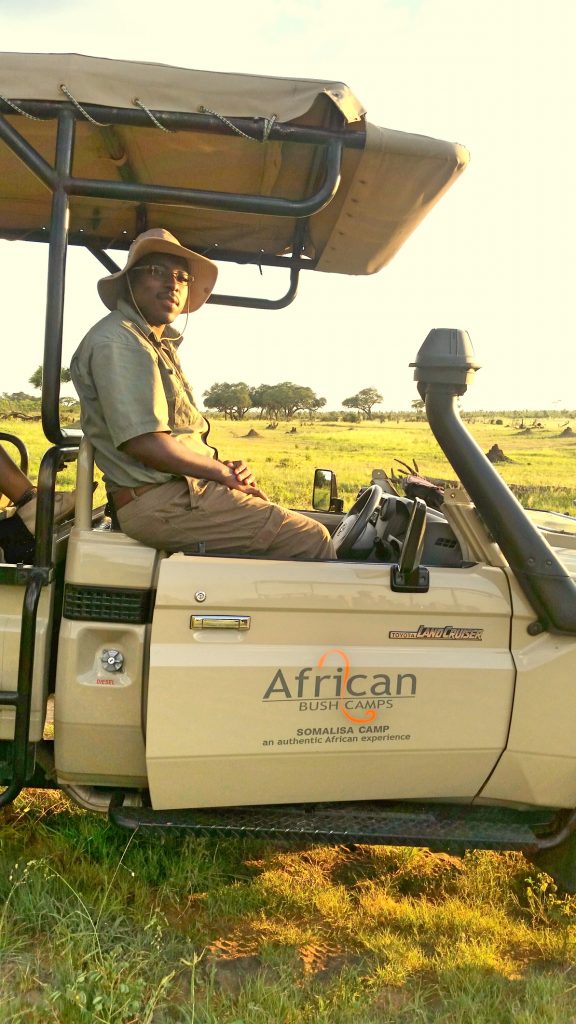
- For me the worst part would have to be getting judged by my age and years in the industry rather than the quality of my work. It’s an unfortunate thing that being a young guide can give some people the impression that you’re not a good guide which, while l understand they would think so, is still biased.
6). Please explain the training you went through and what’s involved.
- For me it’s been a long road in this industry, from taking theoretical lessons, to getting ready for the exams, studying night and day to master what the law requires of me as a guide as well as learning about the different animals and their characteristics. After passing my exams, I did some practical studies under the supervision of different guides from all walks of life. I had to learn everything from tracking, identification of birds by sight, nests, as well as their calls. Most importantly I was privileged to be part of the African Bush Camps team with a combined guiding knowledge of over 120 years. As a result, I’ve been learning from Africa’s best and most experienced guides such as Lewis Mangaba and Calvet Nkomo just to mention a few. While I’m now a professionally qualified guide, my journey is far from over, still have so much more to learn on my way to conquering Africa as a guide 7.
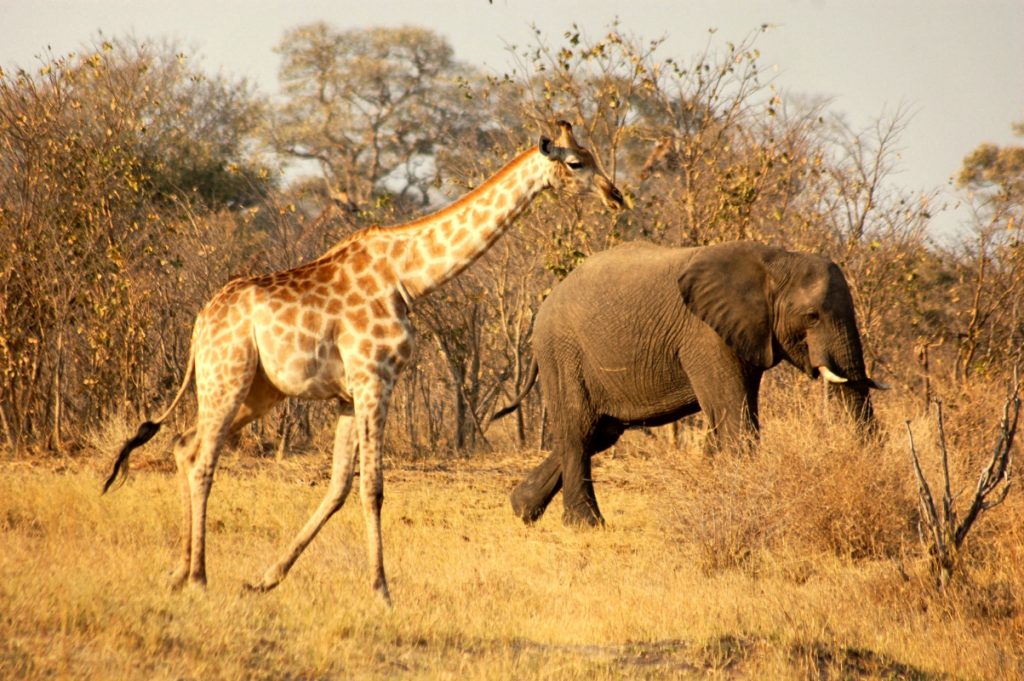
I had no idea how much training the guides have to go through. It often takes 7 years of studying and practical work in order to reach the level of expertise that is required to become an expert guide, and I am so lucky to have experienced this with our guide in Zimbabwe, Makhosi Ncube. When Mak told me he blogged, I was fascinated and said that I had to interview him. Please check out some of his beautiful photos on his website and blog.
[contact-form][contact-field label=”Name” type=”name” required=”true” /][contact-field label=”Email” type=”email” required=”true” /][contact-field label=”Website” type=”url” /][contact-field label=”Message” type=”textarea” /][/contact-form]
All photos in this post are from Mak’s site: wildlifediaries.weebly.com
When I joined Holden Safaris in June 2017, I did not really understand what Jim Holden, President of Holden Safaris, meant about the “luxury of the experience.” Now I understand the importance of having an expert guide who can enhance the overall safari experience.
Please sign up to receive updates on our blog.
Any questions or comments? We look forward to receiving them.

Another great story from a learner guide is Bethany Squire – also very young and being a women has been very tough in this industry. She is currently working at Camp Hwange under Dave Carsons . Check out facebook blog page – https://www.facebook.com/zimgirlinthewild/
[…] for days or months on end. Instead, why don’t you show some interest in them as a person? By forming a bond with the safari guide at the very outset, it can give you some perks with regards to the experience, as they will do a […]